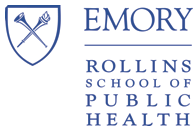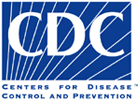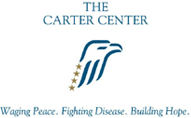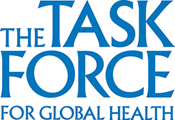The Atlanta Consortium for Safe Water, Sanitation, and Hygiene
A distinctive asset of the Center for Global Safe WASH is its access to a unique partnership of several Atlanta-based organizations working in WASH. Organized as the Atlanta Consortium for Safe Water, Sanitation and Hygiene, these partners have a significant history of collaboration on major projects and research in water, sanitation, and hygiene. The original five members of the consortium are among the leading public health organizations in Atlanta, Georgia: Emory University’s Rollins School of Public Health, Georgia Institute of Technology, CARE USA, Carter Center and the Centers for Disease Control and Prevention (CDC). Each organization and agency brings unique expertise, resources, capabilities and in-country experience to the consortium.
In addition to enhancing interdisciplinary collaborations among the existing partners, the Atlanta consortium works to develop new partnerships with other Atlanta organizations and institutions engaged in water, sanitation, and hygiene efforts. For more information about becoming a part of the Atlanta consortium, please click here.
 The mission of Emory University’s Rollins School of Public Health is to improve health and prevent disease inhuman populations around the world by acquiring, disseminating, and applying knowledge. To achieve its mission, the School has set three goals: 1) to educate individuals for professional careers in public health through master’s and doctoral degree programs, and to further educate individuals already in the public health workforce by enhancing their knowledge and skills in public health; 2) to conduct basic and applied research pertinent to the recognition, characterization, and resolution of health problems in human populations; and 3) to improve the practice and profession of public health.
The mission of Emory University’s Rollins School of Public Health is to improve health and prevent disease inhuman populations around the world by acquiring, disseminating, and applying knowledge. To achieve its mission, the School has set three goals: 1) to educate individuals for professional careers in public health through master’s and doctoral degree programs, and to further educate individuals already in the public health workforce by enhancing their knowledge and skills in public health; 2) to conduct basic and applied research pertinent to the recognition, characterization, and resolution of health problems in human populations; and 3) to improve the practice and profession of public health.
Within this mandate, the CGSW was established in 2004 to specifically address global water, sanitation and hygiene issues through applied research, education and capacity building, and monitoring and evaluation. The CGSW is housed within the Rollins School of Public Health with faculty, staff, and trainees across multiple departments. The CGSW also works with faculty and students from Emory’s Nell Hodgson Woodruff School of Nursing and other Schools within the University.
 CARE is one of the world’s largest private international relief and development organizations whose mission is to serve individuals and families in the world’s poorest communities. CARE works with families and communities worldwide to promote education, economic development, agricultural programs, women’s empowerment and health care. CARE’s programs reach tens of millions of people each year in more than 80 countries in Africa, Asia, Europe, and Latin America. The goal of CARE’s Clean Water Program is to help women, families, schools, and governments to change critical local practices (e.g. handwashing) and strengthen long-term political commitment and allocation of resources for sustainable water, sanitation, and hygiene interventions. CARE also works directly and through local nongovernment organizations with local communities to provide the training and assistance needed to construct and manage low-cost water and sanitation systems.
CARE is one of the world’s largest private international relief and development organizations whose mission is to serve individuals and families in the world’s poorest communities. CARE works with families and communities worldwide to promote education, economic development, agricultural programs, women’s empowerment and health care. CARE’s programs reach tens of millions of people each year in more than 80 countries in Africa, Asia, Europe, and Latin America. The goal of CARE’s Clean Water Program is to help women, families, schools, and governments to change critical local practices (e.g. handwashing) and strengthen long-term political commitment and allocation of resources for sustainable water, sanitation, and hygiene interventions. CARE also works directly and through local nongovernment organizations with local communities to provide the training and assistance needed to construct and manage low-cost water and sanitation systems.
 CDC is a Health and Human Services (HHS) public health agency whose mission is to promote health and quality of life by preventing and controlling disease, injury, and disability. CDC has lead responsibility for domestic disease prevention and health promotion. Accordingly, CDC has developed expertise in providing global health technical assistance and has begun implementing a variety of global health initiatives, including activities related to safe water. In 1996, CDC launched the Safe Water System (SWS), a household-based intervention with three elements: water disinfection, safe storage of treated water, and messages and methods to induce and sustain health changes in behavior. A decade of experience on five continents has demonstrated that SWS programs can be rapidly implemented, can be self-sustaining, and can reduce episodes of diarrhea in families by ~50 percent. While having relationships across several groups, the consortium core partners are mostly from the Waterborne Disease Prevention Branch.
CDC is a Health and Human Services (HHS) public health agency whose mission is to promote health and quality of life by preventing and controlling disease, injury, and disability. CDC has lead responsibility for domestic disease prevention and health promotion. Accordingly, CDC has developed expertise in providing global health technical assistance and has begun implementing a variety of global health initiatives, including activities related to safe water. In 1996, CDC launched the Safe Water System (SWS), a household-based intervention with three elements: water disinfection, safe storage of treated water, and messages and methods to induce and sustain health changes in behavior. A decade of experience on five continents has demonstrated that SWS programs can be rapidly implemented, can be self-sustaining, and can reduce episodes of diarrhea in families by ~50 percent. While having relationships across several groups, the consortium core partners are mostly from the Waterborne Disease Prevention Branch.
 A not-for-profit, nongovernmental organization, The Carter Center has helped to improve life for people in over 80 countries by resolving conflicts; advancing democracy, human rights, and economic opportunity; preventing diseases; and improving mental health care. The Carter Center was founded in 1982 by former U.S. President Jimmy Carter and former First Lady Rosalynn Carter, in partnership with Emory University, to advance peace and health worldwide. Since 1996, The Carter Center has been a leader in the fight against onchocerciasis, commonly known as river blindness – a parasitic disease transmitted by the bites of black flies. The Center has worked to stop the spread of the disease in 11 countries across Africa and the Americas by helping residents and local health workers institute and sustain drug treatment programs and health education activities. The Center has also focused on preventing the transmission of trachoma – a bacterial infection that is the leading cause of preventable blindness worldwide. Trachoma is prevalent in places that lack the tools for basic hygiene, clean water, and adequate sanitation. The Carter Center has also played a role in reducing Guinea worm disease, a parasitic infection contracted through the ingestion of larvae-infested water sources. The Carter Center’s work has led to a 99.99 percent reduction in Guinea worm incidence since 1986.
A not-for-profit, nongovernmental organization, The Carter Center has helped to improve life for people in over 80 countries by resolving conflicts; advancing democracy, human rights, and economic opportunity; preventing diseases; and improving mental health care. The Carter Center was founded in 1982 by former U.S. President Jimmy Carter and former First Lady Rosalynn Carter, in partnership with Emory University, to advance peace and health worldwide. Since 1996, The Carter Center has been a leader in the fight against onchocerciasis, commonly known as river blindness – a parasitic disease transmitted by the bites of black flies. The Center has worked to stop the spread of the disease in 11 countries across Africa and the Americas by helping residents and local health workers institute and sustain drug treatment programs and health education activities. The Center has also focused on preventing the transmission of trachoma – a bacterial infection that is the leading cause of preventable blindness worldwide. Trachoma is prevalent in places that lack the tools for basic hygiene, clean water, and adequate sanitation. The Carter Center has also played a role in reducing Guinea worm disease, a parasitic infection contracted through the ingestion of larvae-infested water sources. The Carter Center’s work has led to a 99.99 percent reduction in Guinea worm incidence since 1986.
 The Georgia Institute of Technology is a science and technology-focused research institute in Atlanta, Ga. Organized into six colleges, Georgia Tech is globally recognized for degree programs in engineering, computing, business administration, the sciences, architecture and liberal arts. Within the School of Civil and Environmental Engineering, the Georgia Water Resources Institute advances the science and practice of water resource planning and management through applied research, education, information dissemination and technology or knowledge transfer programs. Various collaborators from the Schools of Engineering and Architecture have worked in collaboration with CGSW researchers to respond to critical national and international needs for innovative technology and statistical modeling expertise in water, sanitation and hygiene.
The Georgia Institute of Technology is a science and technology-focused research institute in Atlanta, Ga. Organized into six colleges, Georgia Tech is globally recognized for degree programs in engineering, computing, business administration, the sciences, architecture and liberal arts. Within the School of Civil and Environmental Engineering, the Georgia Water Resources Institute advances the science and practice of water resource planning and management through applied research, education, information dissemination and technology or knowledge transfer programs. Various collaborators from the Schools of Engineering and Architecture have worked in collaboration with CGSW researchers to respond to critical national and international needs for innovative technology and statistical modeling expertise in water, sanitation and hygiene.
 Task Force for Global Health improves health conditions for vulnerable populations around the world, especially the poor. Its eight programs focus on controlling and eliminating debilitating infectious diseases and building durable systems that protect and promote health. The Task Force partners closely with the Water, Sanitation, and Hygiene (WASH) sector to eliminate neglected tropical diseases, specifically trachoma, river blindness, lymphatic filariasis, and soil-transmitted helminths. These programs benefit from significant in-kind donations of antibiotic and anti-parasitic medicines from major pharmaceutical companies. In 2016, The Task Force received the Conrad N. Hilton Humanitarian Prize – the world’s largest award of its kind – in recognition of its extraordinary contributions toward alleviating human suffering.
Task Force for Global Health improves health conditions for vulnerable populations around the world, especially the poor. Its eight programs focus on controlling and eliminating debilitating infectious diseases and building durable systems that protect and promote health. The Task Force partners closely with the Water, Sanitation, and Hygiene (WASH) sector to eliminate neglected tropical diseases, specifically trachoma, river blindness, lymphatic filariasis, and soil-transmitted helminths. These programs benefit from significant in-kind donations of antibiotic and anti-parasitic medicines from major pharmaceutical companies. In 2016, The Task Force received the Conrad N. Hilton Humanitarian Prize – the world’s largest award of its kind – in recognition of its extraordinary contributions toward alleviating human suffering.